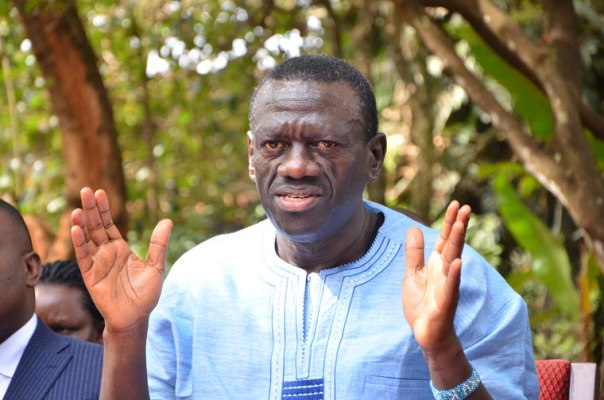The government is considering a policy that will allow authorities regulate the costs of some essential commodities like petroleum products to protect consumers from exploitation.
This follows the uncontrolled hike in prices of fuel by more than 33 percent over the last one year, with the rise blamed on a number of factors.
These include a global increase in crude oil prices that has seen prices of finished product also correspondently rise ever since the economies started easing the Covid-19 control measures.
For Uganda, the issue was exacerbated by the strike by truck drivers at Malaba in January over Covid-19 testing fees, which saw the prices jump from an already high 4,300 shillings for petrol at the beginning of January this year, to around 6,000 shillings in February.
Following the end of the drivers’ strike, the prices eased slightly to an average 5,000 shillings, though they are on the rise again.
Other factors cited included the rise in global shipping costs and later the market disruptions caused by the Russian invasion of Ukraine last month.
Diesel prices have risen from 4,000 to 4,400 over the last one month.
The government has been accused of not putting in place mitigating measures against such shocks, including neglecting the national fuel reserves and maintaining high taxes on the affected commodities.
The Minister for Finance, Planning and Economic Development, Matia Kasaija says they have started on the process that could see them control prices for commodities like fuel.
On top of giving more land to oil palm growers in Buvuma and Sango Bay, in Ktyotera District, Minister Kasaija say they have started on a benchmarking process in neghbouring countries.
Currently, Uganda has the highest prices of pump prices in East Africa, where the average price is 4,700 shillings a litre of petrol.
Kenya, Rwanda and Tanzania fuel industries are regulated and the prices controlled by the Kenya Energy and Petroleum Regulatory Authority, the Rwanda Utilities Regulatory Authority and Tanzania’s Energy and Water Utilities Regulatory Authority, respectively.
These agencies regularly announce maximum prices for retailers, while Kenya even subsidises the prices. It is not clear how much of these systems the Uganda government will adopt after the benchmarking exercise.
Other goods and services have also seen prices rise sharply in the recent months. These are mainly consumer goods especially cooking oil, soap, wheat and to a lesser extent sugar, building materials and others.
While prices rises of locally produced goods like sugar and cement have are being attributed to rising cost of production and transportation due to the price of oil, others are imports and already highly priced.
Minister Kasaija says most countries are experiencing high inflation figures, with the US and UK posting 7.9 and 5.5 percent in February, the highest figures in three decades.
Other like Brazil, India, Kenya and China are also experiencing high inflation rates.
These are some of Uganda’s trading partners, and importing goods from their also influences prices in Uganda.
However, some traders have been accused of hoarding goods to create “an artificial scarcity” so as to hike prices.
Kasaija also ruled out any possibility of lifting taxes on affected essential commodities as suggest by parts of the business community, saying that it wouldn’t stop hoarding, which has been identified as one of the drivers of high prices.
The 10 percent duty on crude palm oil imports has been the most criticized recently, with manufacturers calling on the government to scrap it, less than a year since it was introduced.
The government introduced the tax on crude oil, unlike on most raw materials that are tax-free, to tame smuggling. Moses Kabanda, the Assistant Commissioner Macroeconomics at the Ministry of Finance says the tax was initially on intermediary crude and the finished oil products so as the encourage local production.
However, Kabanda says importers of crude started declaring finished products as crude, so as to evade the due tax, hence the decision to impose the 10 percent.
He however, says it cannot be blamed or the rising price of the finished product because the upward trend started recently, more than six months after the tax took effect.
The Executive Director, Uganda Bureau of Statistics, Dr Chris Mukiza says despite the skyrocketing prices of essential commodities, the general inflation has remained low and within the targeted rates of 0 to 5 percent.
The latest inflation rate of 3.2 percent was announced at the end of February, and the UBOS is due to announce the latest at the end of March, which is expected to be higher.
He says the rate for Uganda has been relatively low compared to the rest of the region because the food crop prices, which account for the bigger share of the inflation, have remained stable.
He also is opposed to the waiving of taxes saying the prices are largely being driven by speculation by those who are hoarding.
-URN





